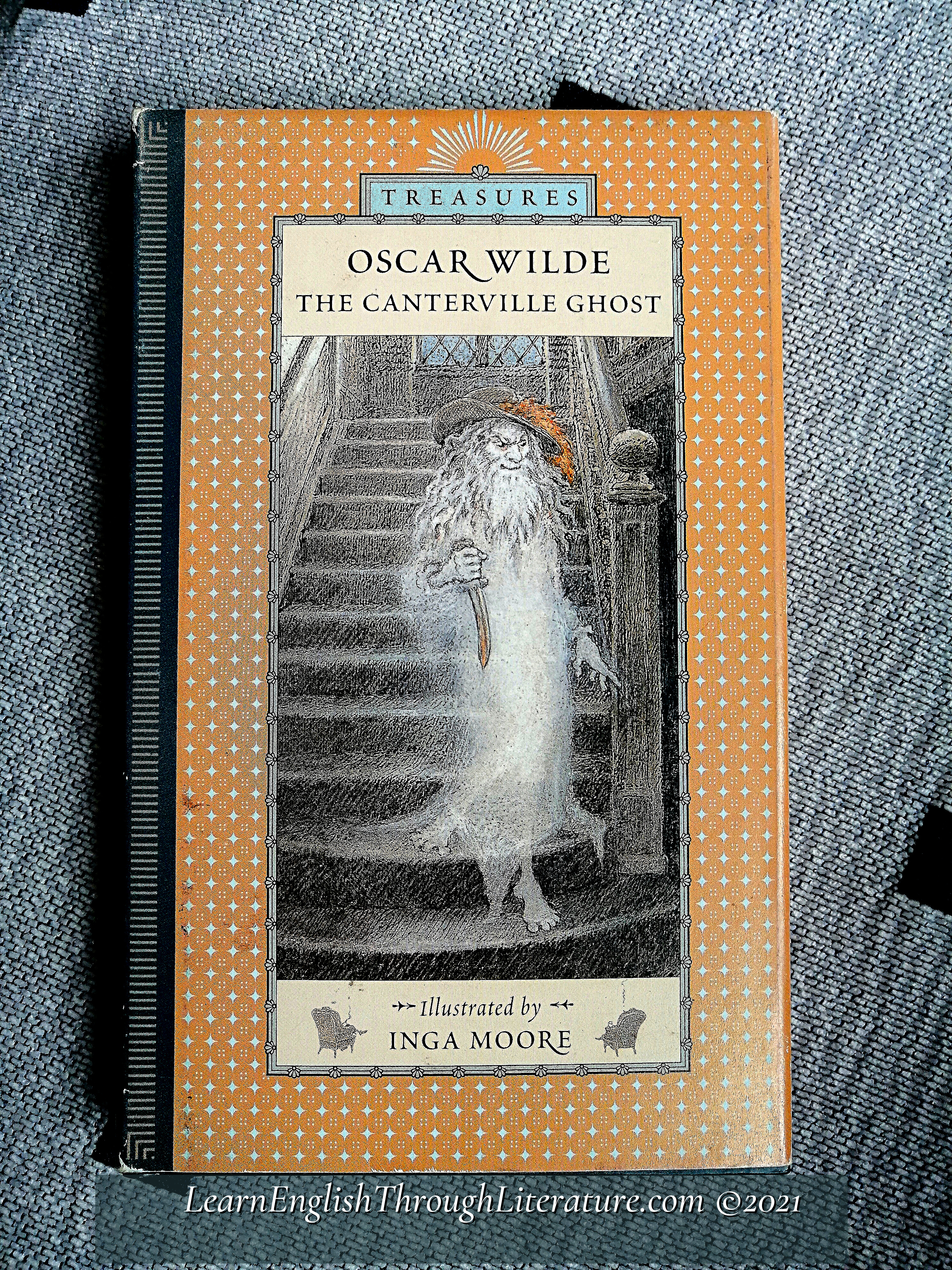📙 Many American ladies on leaving their native land adopt an appearance of chronic ill-health, under the impression that it is a form of European refinement, but Mrs. Otis had never fallen into this error. She had a magnificent constitution, and a really wonderful amount of animal spirits. Indeed, in many respects, she was quite English, and was an excellent example of the fact that we have really everything in common with America nowadays, except, of course, language.
– Oscar Wilde, The Canterville Ghost (1887)
…
One of the most perplexing (confusing) points for English language students tends to be word order, especially verbal word order. Today’s Lesson in 2 parts looks at the word order of the following grammatical structures:
- past perfect verb form + adverbs
- past participles + infinitives
- present participles + infinitives
- simple past tense + 2 infinitives
- 2 simple past tense constructions in a row
- 2 different verb forms (simple past + present participle) in a row
And all of these will be illustrated by Oscar Wilde’s funny and touching story, The Canterville Ghost (1887), which I am sure you will enjoy if you ever read it in full! (I can remember my mother reading it to us as children, and how much we laughed at the poor ghost’s foiled (thwarted, stopped by another, failed) attempts to scare the Otis family time and again … such good memories!) 😄
…
📝 # PAST PERFECT AND ADVERBS
📙 Besides it was his own suit. He had worn it with great success at the Kenilworth tournament, and had been highly complimented on it by no less a person than the Virgin Queen herself. Yet when he had put it on, he had been completely overpowered by the weight of the huge breastplate and steel casque, and had fallen heavily on the stone pavement, barking both his knees severely, and bruising the knuckles of his right hand.
– Oscar Wilde, The Canterville Ghost (emphases mine)
A quick review question: do you remember how the past perfect is formed?
It is formed from the verb ‘have’ and the past participle of a verb, e.g., ‘had been’ + ‘employed’ in this sentence: ‘you had been employed as a student many years before your current job.’
But what happens when we want to use an adverb such as ‘very’, ‘really’, ‘completely’, ‘totally’, ‘hardly’? Where does it go in the sentence’s word order?
✍️ It simply goes between the ‘have’ verb form and the past participle of the verb: e.g., ‘had been highly complimented’, or, ‘had been completely overpowered’, as the quotation above demonstrates.
✍️ NOTE: The exception to this rule comes when we want to use adverbs expressing time or agreement such as ‘never’, ‘not’, or ‘always’: these adverbs come between the ‘had’/’have’ part of the construction and ‘been’: ‘I had always hoped to work in that sector’, ‘you had not visited that place before’, or, ‘he has never been interested in learning how to drive’.
…
📝 # PAST PARTICIPLES AND INFINITIVES
This is a construction – having a past particple followed by an infinitive – that is very common in English so it is worth paying special attention to: e.g., e.g., ‘retired to rest’, ‘failed to wake’, ‘sought to address’.
✍️ It describes a kind of effort (the past participle) to do or achieve a particular action (the infinitive).
📙 With regard to little Virginia, he had not quite made up his mind. She had never insulted him in any way, and was pretty and gentle. A few hollow groans from the wardrobe, he thought, would be more than sufficient, or, if that failed to wake her, he might grabble at the counterpane with palsy-twitching fingers.
– Oscar Wilde, The Canterville Ghost (emphasis mine)
We normally follow this construction – ‘past participle’ + ‘infinitive’ – with a noun, but sometimes a present participle might follow instead. Consider this line from Oscar Wilde:
📙 At eleven o’clock the family retired, and by half-past all the lights were out. Some time after, Mr. Otis was awakened by a curious noise in the corridor, outside his room. It sounded like the clank of metal, and seemed to be coming nearer every moment.
– Oscar Wilde, The Canterville Ghost (emphasis mine)
…
📝 # PRESENT PARTICIPLES AND INFINITIVES
✍️ Like with the ‘past participle + infinitive’ construction just mentioned, this ‘present participle + infinitive’ construction describes an ongoing effort (the present participle) to do or achieve a particular action (the infinitive).
However, it is not as commonly used as the ‘past participle + infinitive’ construction. We find it in written English more than in spoken English (cf. the ‘past participle + infinitive’ construction is common in both spoken and written English).
📙 ‘On and on he glided, like an evil shadow, the very darkness seeming to loathe him as he passed.’
– Oscar Wilde, The Canterville Ghost (emphasis mine)
…..
Join me in Part 2 for the continuation of this Lesson!




